Lynch Syndrome Screening Guidelines
Lynch syndrome screening guidelines. Lynch syndrome LS is characterised by the development of colorectal cancer endometrial cancer and various other cancers and is caused by a mutation in one of the mismatch repair genes. Of pedigrees with Lynch syndrome. A person with colorectal cancer at age 40 or younger A person with colorectal cancer and another Lynch syndrome cancer with one diagnosed at age 50 or younger Two close family members with a Lynch syndrome cancer at age 50 or younger.
Table 10 provides guidelines for screening at-risk and affected persons with Lynch syndrome. Get a colonoscopy every one to two years starting in your twenties. MLH1 MSH2 MSH6or PMS2.
Guidelines for cancer screening in patients diagnosed with Lynch syndrome have been proposed by several groups including. Screening Tests for Lynch Syndrome The best approach to make the diagnosis of Lynch syndrome is by testing a colorectal cancer for genetic alterations seen in Lynch syndrome. Annual colonoscopy should be considered in confirmed mutation carriers strong recommendation.
The American College of Gastroenterology United States Multi-Society Task Force on Colorectal Cancer European Hereditary Tumor Group the Manchester International Consensus Group the British Society of Gastroenterology the. Screening for Lynch syndrome is done on the colorectal cancer tissue after surgery using immunohistochemistry IHC andor microsatellite instability MSI testing. If you have Lynch syndrome you should get a colonoscopy every one to two years to screen for colorectal cancer.
Lynch syndrome can be confirmed through a blood test. Doing this will reduce your risk of colorectal cancer by 77 percent. European Societyof Gastrointestinal Endoscopy ESGE Guideline Authors Monique E.
Currently testing is available for the MLH1 MSH2 MSH6 PMS2 and EPCAM genes. A detailed explanation of Lynch syndrome and the methodology utilized to derive. Currently there are no compelling data on effective screening for other Lynch syndromeassociated cancers including gastric urinary tract pancreaticobiliary small intestinal or brain cancers.
These standards are pretty much a minimum standard of screening. In 2007 a group of European experts the Mallorca group published guidelines for the clinical management of LS.
MLH1 MSH2 MSH6or PMS2.
Lynch syndrome is more likely if one or more of the following features can be confirmed in your family. And Table 12lists the guidelines for the management of patients with Lynch syndrome. In individuals at risk for or affected with LS screening for colorectal cancer by colonoscopy should be performed at least every 2 years beginning between ages 20 and 25 years. A detailed explanation of Lynch syndrome and the method-ology utilized to derive these guidelines as well as an. The test can determine if someone carries a mutation that can be passed down called heritable in 1 of the genes associated with Lynch syndrome. Currently there are no compelling data on effective screening for other Lynch syndromeassociated cancers including gastric urinary tract pancreaticobiliary small intestinal or brain cancers. Screening for Lynch syndrome is done on the colorectal cancer tissue after surgery using immunohistochemistry IHC andor microsatellite instability MSI testing. Currently testing is available for the MLH1 MSH2 MSH6 PMS2 and EPCAM genes. To locate the guidelines for Lynch syndrome click under NCCN Guidelines for Detection Prevention and Risk Reduction and then click on Colorectal Cancer Screening.
Guidelines for screening at-risk or affected persons with Lynch syndrome In carriers of deleterious MSH6 and PMS2 mutations the risk of CRC is lower and age at diagnosis later 22 25 than in patients with MLH1 and MSH2 mutations. In individuals at risk for or affected with LS screening for colorectal cancer by colonoscopy should be performed at least every 2 years beginning between ages 20 and 25 years. Guidelines for screening at-risk or affected persons with Lynch syndrome In carriers of deleterious MSH6 and PMS2 mutations the risk of CRC is lower and age at diagnosis later 22 25 than in patients with MLH1 and MSH2 mutations. These standards are pretty much a minimum standard of screening. Get a colonoscopy every one to two years starting in your twenties. Table 10 provides guidelines for screening at-risk and affected persons with Lynch syndrome. Screening Tests for Lynch Syndrome The best approach to make the diagnosis of Lynch syndrome is by testing a colorectal cancer for genetic alterations seen in Lynch syndrome.




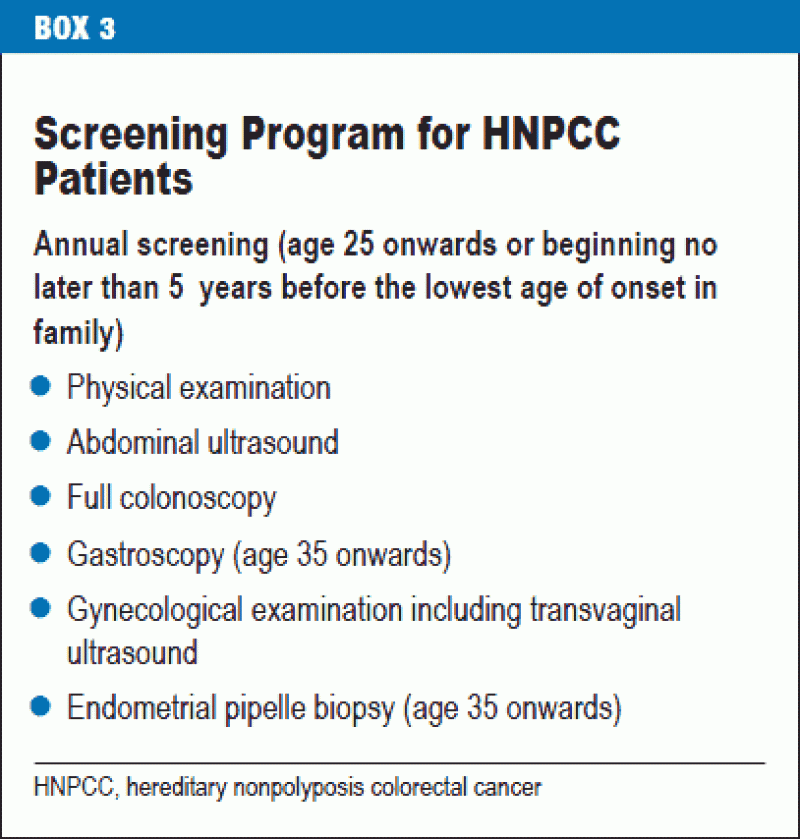






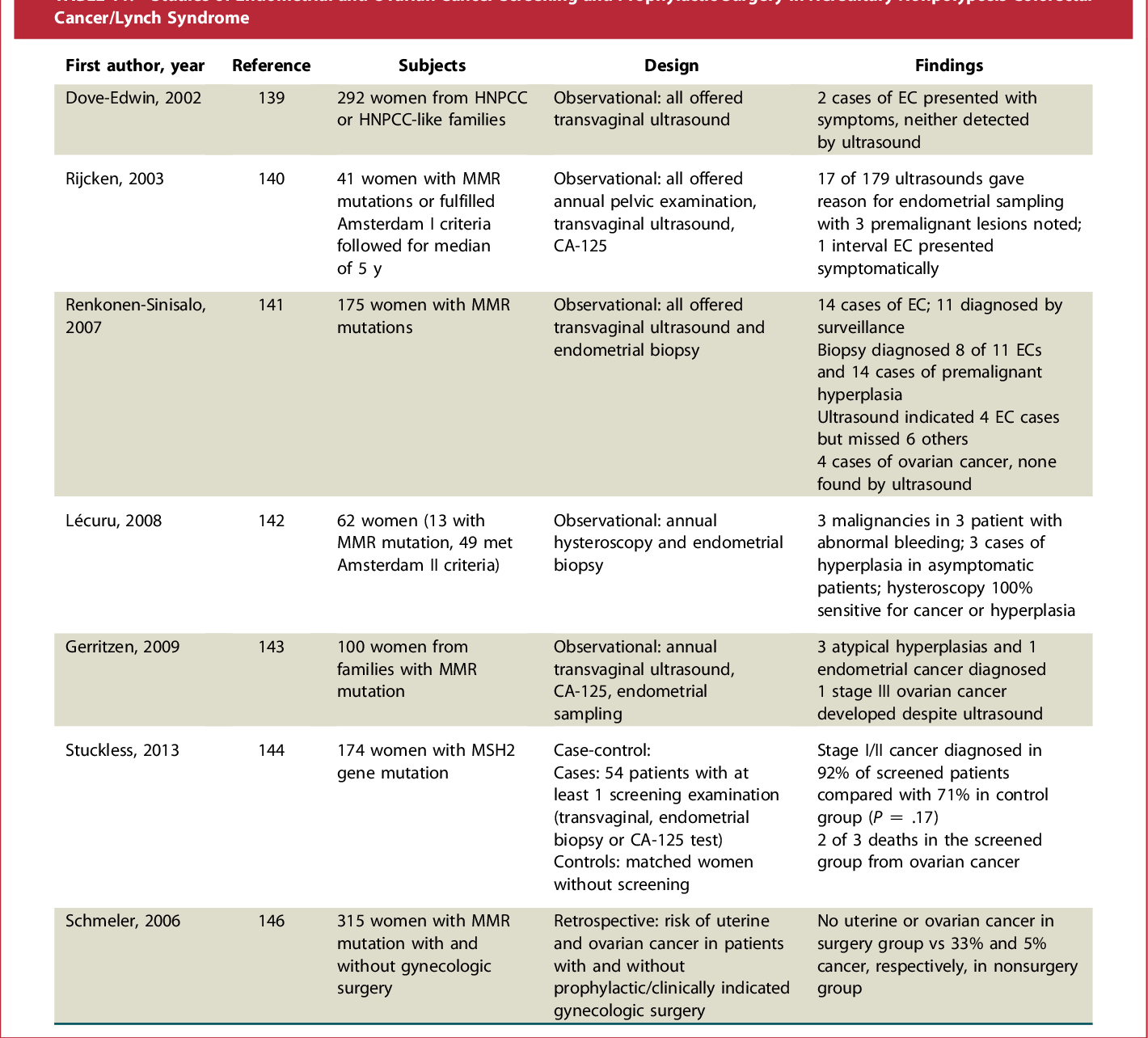

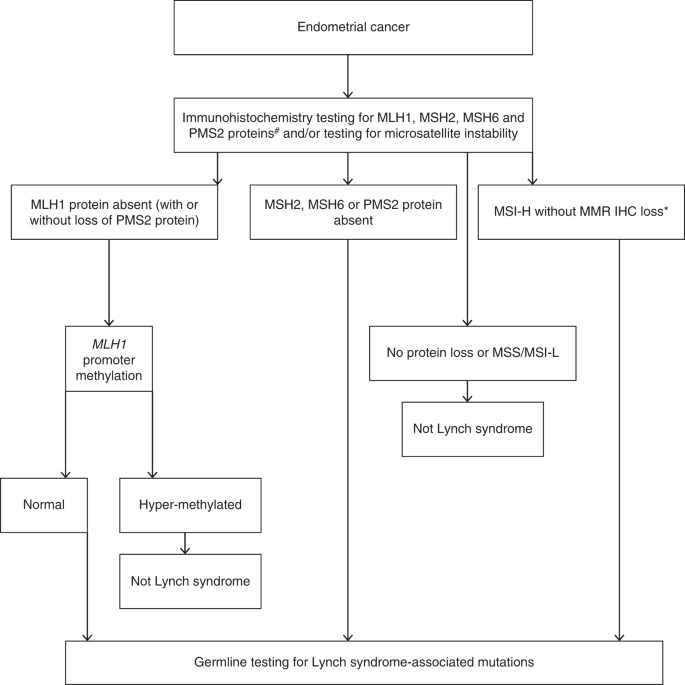

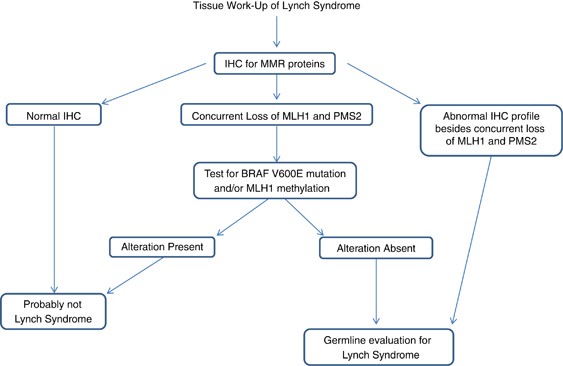



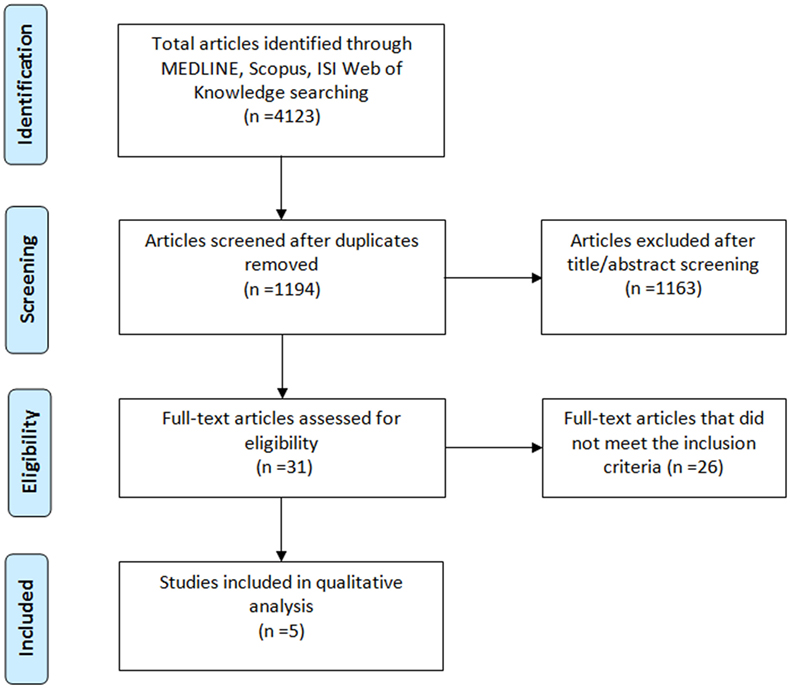


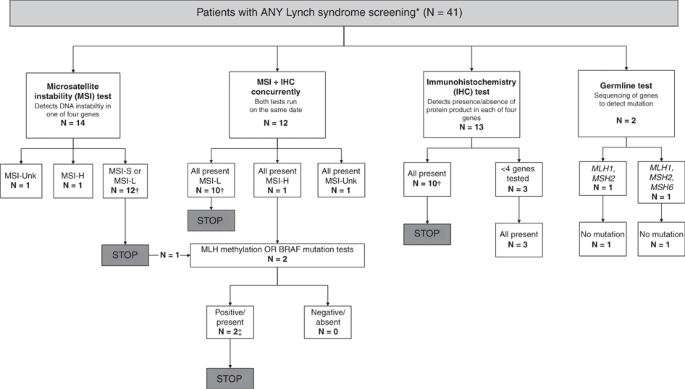
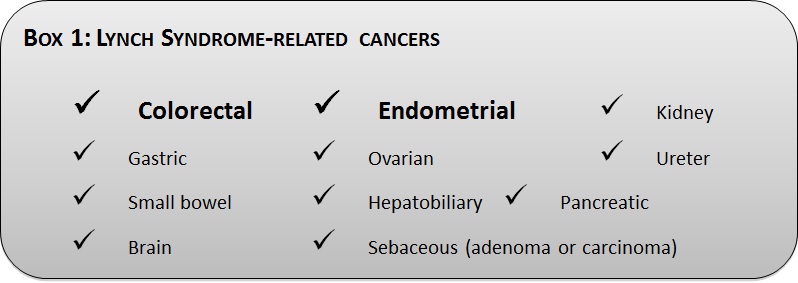
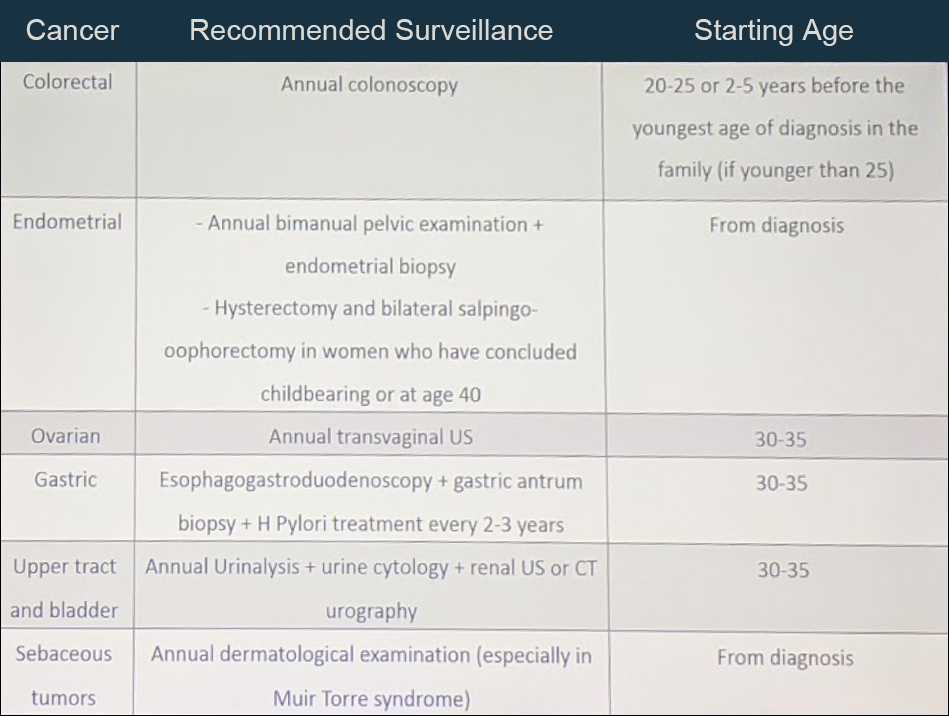


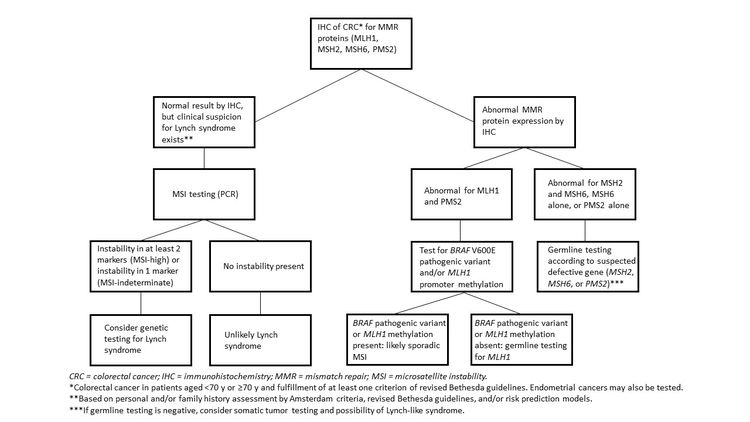




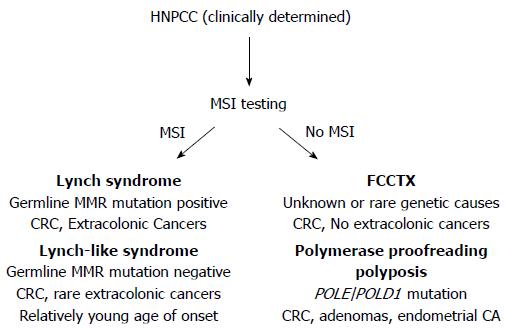


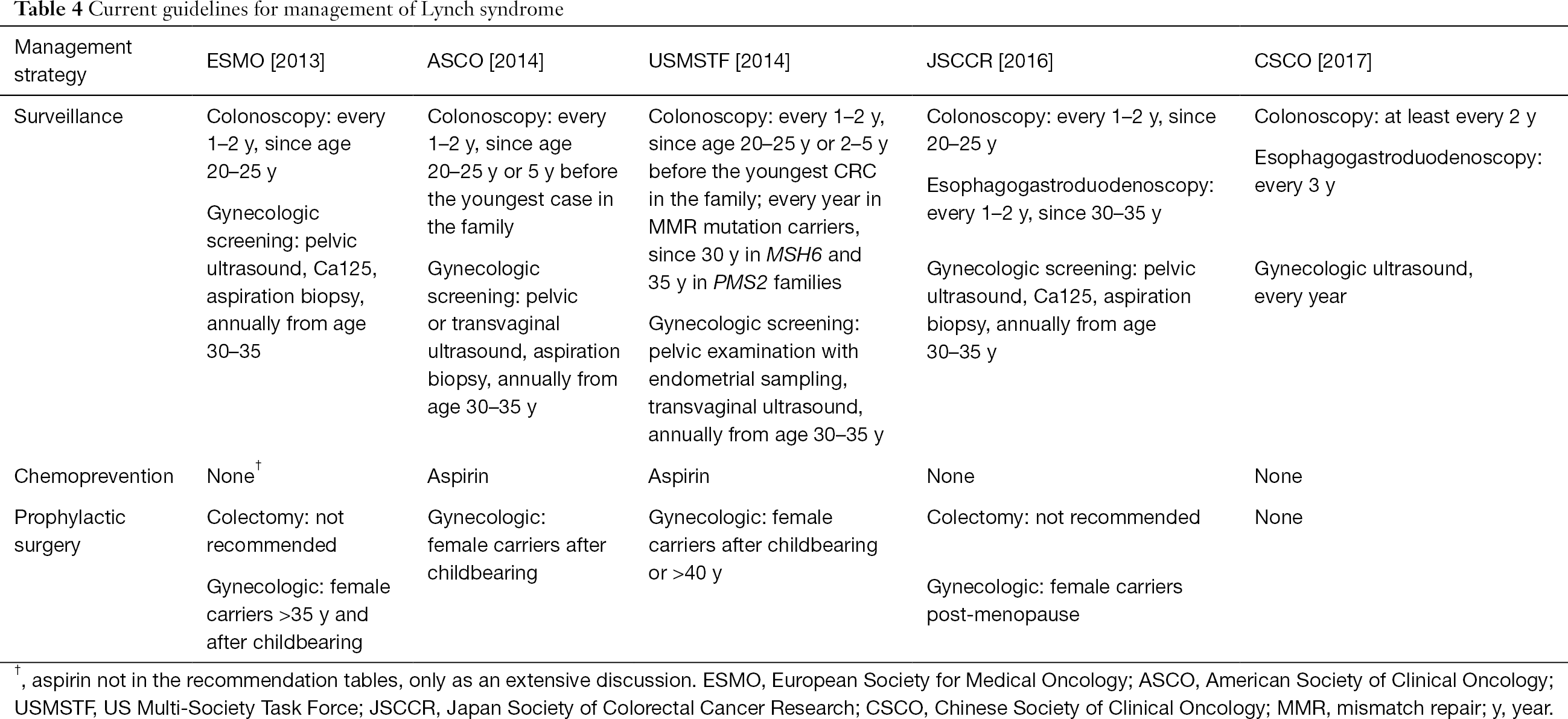



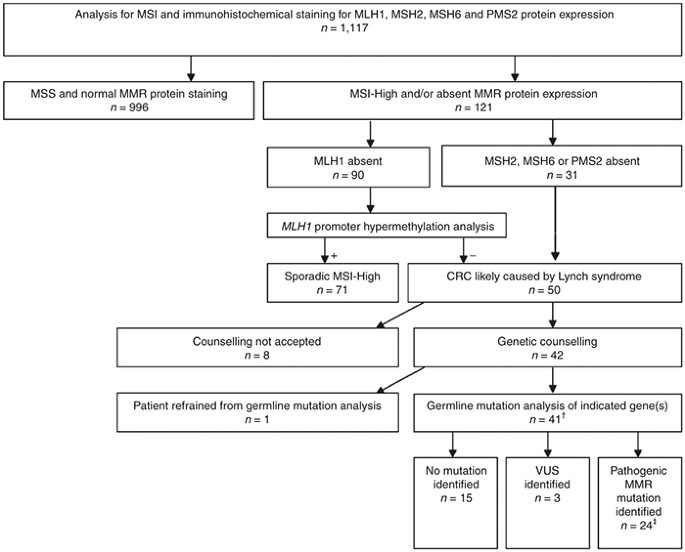
Post a Comment for "Lynch Syndrome Screening Guidelines"